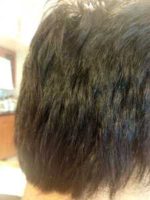21 Mar What is Dandruff and What Can I Do About It?
MedicalResearch.com Interview with:
Dr. Janet Prystowsky, MD
Dr. Prystowsky is a leading board-certified dermatologist in
New York City.
In addition to her private practice, Dr. Prystowsky is a senior attending physician at Mount Sinai Roosevelt/St. Luke’s Medical Center.
http://www.janetprystowskymd.com/
MedicalResearch.com: Would you describe what dandruff looks like on most people?
Dr. Prystowsky: Normal dandruff looks like tiny white flakes or dust in your hair. These flakes are a buildup of dead skin cells mixed with skin oils.
MedicalResearch.com: Is dandruff the same as seborrheic dermatitis? How does it differ from psoriasis or eczema? Do scientists understand what causes dandruff? Is it caused by stress, diet or fatigue?
Dr. Prystowsky: Normal dandruff is caused by the accumulation of dead skin cells and skin oils (sebum) that are a part of normal scalp function. Sebum is produced in hair follicle oil glands, and skin cells slough from the scalp surface just as they do from the rest of your body. It is a part of normal skin cell turnover.
However, you may also get excessive dandruff if you have scalp skin diseases such as psoriasis, eczema, and seborrheic dermatitis. Skin infections with fungus (tinea capitus), head lice, or Staph. Aureus may also trigger excessive flaking.
MedicalResearch.com: Is dandruff curable or controllable?
Dr. Prystowsky: Dandruff is a condition that is typically controlled; i.e. it is not cured unless it is from an infection. It can be highly affected by stress so it may wax and wane depending upon what is going on in your life.
MedicalResearch.com What should a person do if they think they have dandruff?
Dr. Prystowsky: Washing the scalp by shampooing every few days will remove dandruff readily. When you have excessive dandruff, this could be from infrequent hair washing or a skin disease/condition.
If you have dandruff from seborrheic dermatitis, using a shampoo with antifungal agents, like the new Dove shampoo line for dandruff will leave your scalp clear of flakes and your hair more manageable than with other dandruff shampoos. I’ve worked with the Dove brand and have recommended their products to patients for years. There are many great shampooing options for controlling mild to moderate dandruff, however, and it’s up to you to find one that works best for you. For more persistent and difficult to control dandruff, you should see your dermatologist to see if a prescription antifungal, antibiotic, or topical steroid are indicated to treat your dandruff problem.
MedicalResearch.com: What else should readers take away from your report?
Dr. Prystowsky: Some people with lice may mistakenly believe they have dandruff. If your ‘white specks’ seem to cling to your hair and do not easily fall out when you itch, then you may have lice. Adult lice can also be tan or brown, which will help you tell the difference.
Disclosures: I’ve worked with the Dove brand.
[wysija_form id=”3″]
The information on MedicalResearch.com is provided for educational purposes only, and is in no way intended to diagnose, cure, or treat any medical or other condition. Always seek the advice of your physician or other qualified health and ask your doctor any questions you may have regarding a medical condition. In addition to all other limitations and disclaimers in this agreement, service provider and its third party providers disclaim any liability or loss in connection with the content provided on this website.
Last Updated on March 21, 2018 by Marie Benz MD FAAD


